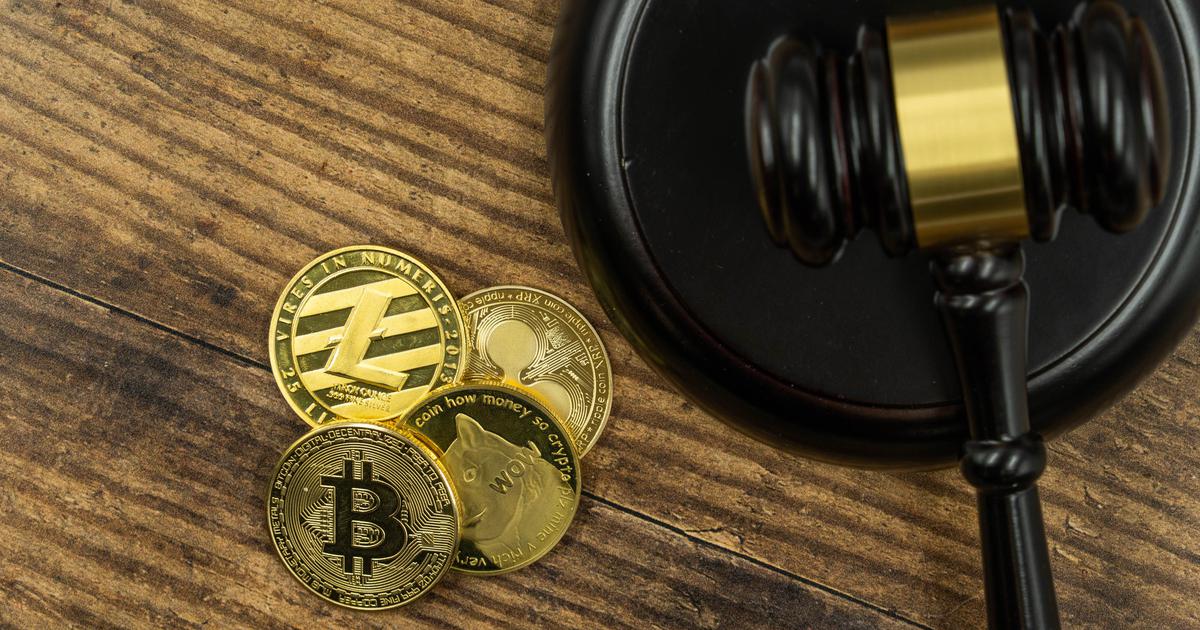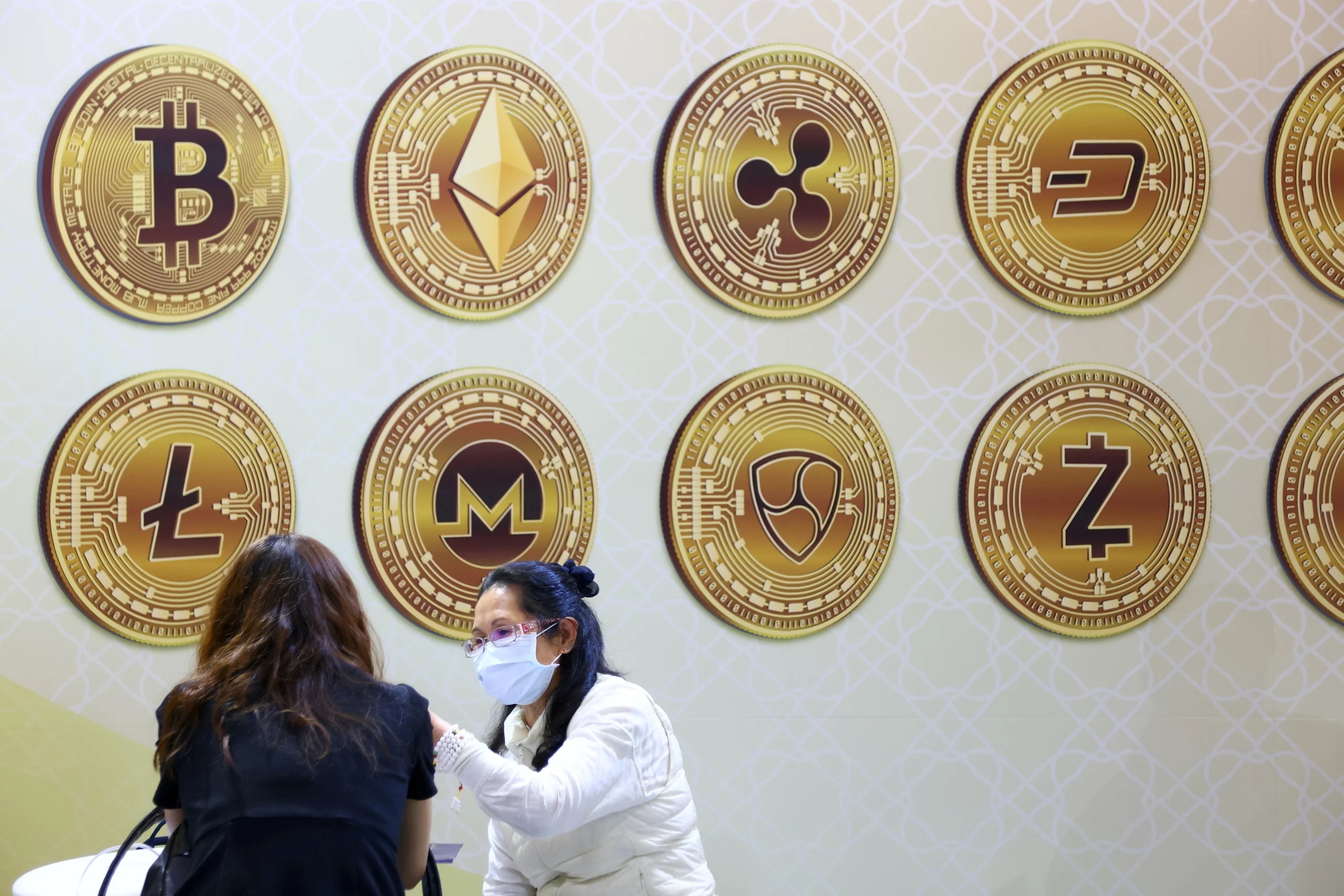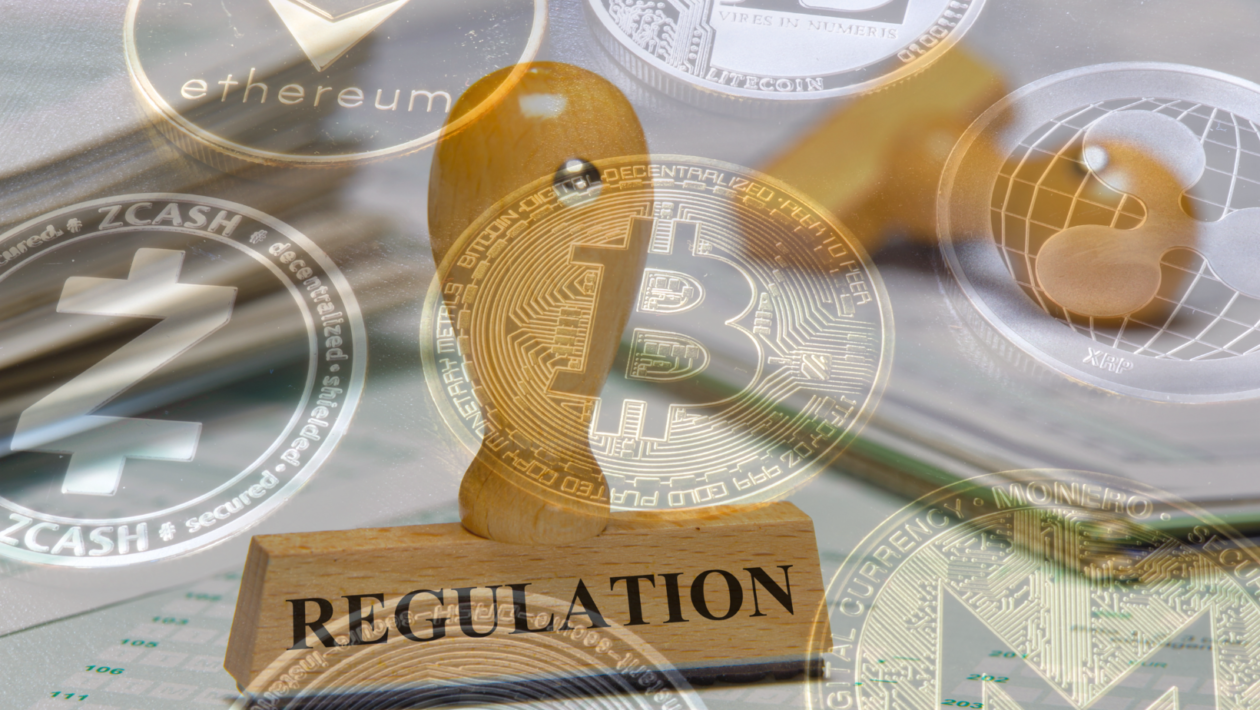In digital currencies, a hot topic that keeps everyone on their toes is the debate on crypto regulation.
You might wonder, should these digital assets be regulated or left to flourish in their innate decentralized environment?
This question piques crypto enthusiasts’ interest and draws global attention from regulators, economists, and policymakers.
On the one hand, there’s a clamor for structured oversight, a framework that proponents believe could instill a higher level of trust, safety, and legitimacy.
On the flip side, many argue that the very essence of cryptocurrencies – their decentralization, anonymity, and freedom from traditional financial systems – could be at risk.
So, we are at a crossroads, juggling the allure of innovation and the caution of oversight.
In this article, I’ll dive deep into seven compelling reasons why some believe steering clear of regulating cryptocurrencies might be the best path forward.

Reason 1: Preserving the Essence of Decentralization
Decentralization is the beating heart of cryptocurrency.
It’s that golden attribute that sets it apart from traditional fiat currencies.
Now, imagine a world where this essence is diluted.
Not a pleasant thought.
Cryptocurrencies were born out of a desire to step away from centralized financial systems, offering a level of freedom and autonomy previously unheard of.
It’s like a breath of fresh air for many.
Every transaction and exchange exists independently, free from the watchful eyes of central banks and governments.
However, introducing regulation could potentially undermine this core principle.
It’s akin to clipping the wings of a bird.
Regulations, by their very nature, involve oversight, control, and restrictions.
It’s necessary in some areas but could be a different ball game in crypto.
The beauty of blockchain technology lies in its open ledger system, where transactions are transparent, anonymous, and immutable.
It’s a system that operates on trust and consensus among its users.
Now, inject stringent regulations into this ecosystem, and you might find that the vibrant, dynamic pulse of the crypto world starts to fade.
In essence, to regulate cryptocurrency is to risk eroding its foundational principle of decentralization.
It’s a delicate balance and one that warrants careful consideration.
Is the trade-off worth it?
That’s the million-dollar question.
However, there are decentralized crypto exchanges that still offers you the experience of making transactions or trading in a decentralized way.
Reason 2: Innovation and Creativity
Innovation and creativity are the lifeblood of the tech world.
It’s that magical space where ideas blossom and revolutionary technologies are born.
In that vein, crypto is a dynamic, ever-evolving landscape teeming with innovation.
But here’s something to chew on – could regulation stifle this creative boom?
Imagine a world where every step and innovation in crypto is met with red tape and bureaucratic hurdles.
It’s like trying to paint a masterpiece with your hands tied.
Regulations, while well-intentioned, can slow down the rapid pace of innovation, turning a torrent into a trickle.
Cryptocurrencies and blockchain technology have opened up a world of possibilities.
From Bitcoin to Ethereum and many altcoins in between, we’ve witnessed the birth of revolutionary applications and platforms.
Decentralized finance (DeFi), smart contracts, and NFTs are just the tip of the iceberg.
The absence of stringent regulations has allowed for experimentation and risk-taking that are often necessary for groundbreaking innovations.
It’s a playground where creative minds can explore, invent, and push boundaries without the looming shadow of regulatory constraints.
While regulations aim to instill order and safety, there’s a flip side.
The risk of hampering the creative spirit that propels the crypto space forward.
Reason 3: Global Accessibility

Global accessibility is a cornerstone of the cryptocurrency ethos.
It’s a world where anyone, anywhere, with an internet connection, can participate.
Now, let’s consider the impact of regulation on this open access.
Imagine a farmer in a remote village or a talented developer in a developing country.
Cryptocurrency has opened doors for them that were previously locked tight.
But stringent regulations could slam those doors shut.
Regulations often come with complex compliance requirements.
While essential for security, KYC (Know Your Customer) and AML (Anti-Money Laundering) protocols can sometimes become barriers.
Want to trade crypto anonymously? Use these NON KYC Crypto Exchanges
Meeting these requirements can be a Herculean task for individuals in regions with limited infrastructure or documentation.
The beauty of cryptocurrency lies in its borderless nature.
It’s a universal language that transcends geographical boundaries.
Regulations, by their very nature, are often confined to the jurisdictional boundaries of individual countries.
The risk?
Fragmentation of a global ecosystem.
While regulations are crafted with safety and security in mind, they could inadvertently erect walls in a world built on openness.
It’s a delicate balance.
A world where opportunity isn’t bound by geography and financial empowerment is accessible to all.
Reason 4: Privacy Concerns
Privacy – it’s a word that resonates deeply in the digital age.
In traditional finance, transactions are often laid bare to myriad intermediaries.
Every swipe of a card, every bank transfer, leaves a digital footprint.
Now, enter cryptocurrency – a realm where privacy is not just a feature but a foundational principle.
Cryptocurrencies offer a level of privacy that is unprecedented in the financial world.
The introduction of regulations could potentially undermine this privacy.
How, you ask?
By necessitating stringent identity verification processes and transaction monitoring.
Imagine a world where every Bitcoin transaction is as scrutinized as a bank transfer.
It’s a scenario that could see the erosion of the pseudonymity many cryptocurrency enthusiasts hold dear.
The blockchain, a public ledger, yes, but one where cryptographic puzzles shield identities.
Regulations, while well-intentioned, could inadvertently strip away these layers of privacy.
Every transaction, every movement of digital assets, laid bare to the regulatory gaze.
It’s a prospect that raises not just practical but ethical questions.
So, as we navigate the complex terrains of the crypto world, the question of privacy stands as a sentinel.
It beckons carefully considering balancing the imperatives of security with the cherished principle of privacy.
Reason 5: The Risk of Overregulation

Overregulation – it’s a term that sends shivers down the spine of innovation and progress.
Now, let’s dive into the crypto space, a world teeming with innovation, creativity, and the relentless pursuit of decentralization.
But could the heavy hand of overregulation stifle this burgeoning ecosystem?
Imagine a world where every transaction, every coin minted, and every smart contract deployed is trapped in a web of bureaucratic red tape.
The dynamic, fast-paced world of crypto could be slowed to a crawl, its innovative spirit shackled by the chains of excessive oversight.
Overregulation doesn’t just threaten innovation; it could potentially undermine the very ethos of the crypto world.
A space born from the desire for autonomy, privacy, and decentralization could morph into a mirror image of the traditional financial system.
And let’s not forget the entrepreneurs, the innovators, the dreamers.
Overregulation could see these pioneers, often operating on the cutting edge of technology and finance, retreating.
The risk?
A world where the next big idea, the next Bitcoin or Ethereum, is snuffed out before it even sees the light of day.
So, as we stand on the cusp of a new era, the specter of overregulation looms large.
It’s a reminder that while oversight is necessary, a balanced approach is critical.
After all, in the dance between regulation and innovation, every step, every move, counts.
Reason 6: Flexibility and Adaptability of Crypto Markets
Flexibility and adaptability – two cornerstones that have propelled the crypto markets into the global limelight.
But here’s a question worth pondering: could regulation undermine these vital attributes with its rigid structures and stringent rules?
Let’s break it down.
The crypto market is akin to a living organism constantly evolving, adapting, and transforming in response to the ever-changing landscape.
It’s dynamic, it’s vibrant, and yes, it’s unpredictable.
But isn’t that part of the charm?
Picture a scenario where every move, every shift in the market is met with a regulatory response, a tightening of the reins.
The result?
A market that’s stifled, constrained, and stripped of its natural ability to adapt.
The absence of stringent regulation allows the crypto market to breathe, to flex its muscles, and to navigate the tumultuous waters of the financial world with agility.
It fosters an environment where innovation isn’t just welcomed; it’s celebrated.
The flexibility and adaptability of crypto markets are not just features; they’re fundamental to its identity.
And in a world of uncertainty, these attributes could be the compass guiding the crypto ship through uncharted waters.
Reason 7: Self-Regulation and Community Standards
Now, let’s pivot to another crucial aspect that often flies under the radar: the power of self-regulation and community standards.
You might be wondering, can a financial ecosystem truly thrive without the watchful eye of regulatory bodies?
Well, the crypto community is living proof.
Here’s the scoop.
Without external regulation, the crypto community has meticulously crafted an automated environment.
It’s a space where community standards aren’t just guidelines but are revered as the holy grail.
And it gets better.
These standards are not etched in stone but are dynamic, evolving in tandem with the needs and challenges of the community.
It’s a grassroots movement where every member, from the novice trader to the crypto whales, plays a pivotal role in shaping the landscape.
But here’s the kicker.
This self-regulating mechanism fosters accountability and transparency, which is often hard to achieve under traditional regulatory frameworks.
It’s a world where the community is the watchdog, and ethical practices are not enforced but ingrained in the ecosystem’s ethos.
Self-regulation and community standards are not just viable but potent tools that underscore the resilience and integrity of the crypto space.
It’s a testament that sometimes, the best form of governance springs from within.
Counterarguments: The Case for Regulation

Now, hold on a second.
While the arguments against regulation are compelling, there’s a flip side to this coin.
Some argue that regulation if done right, can be a game-changer.
Think about it: enhanced security, investor protection, and legitimacy in the eyes of skeptics.
It’s not about stifling innovation but channeling it safely.
The key?
Striking that delicate balance where regulation and innovation coexist, each amplifying the other.
It’s a tightrope walk that could usher the crypto world into an unprecedented growth and acceptance era.
The question is, can this middle ground be found?
Conclusion: Weighing the Pros and Cons
Navigating the intricate dance between innovation and regulation is no small feat.
On one hand, the unbridled freedom that comes with an unregulated cryptocurrency market fuels innovation, privacy, and global accessibility.
It’s the wild west, teeming with opportunities and risks alike.
The specter of security breaches, scams, and the volatile nature of such a market can’t be ignored.
It’s a double-edged sword, where the very factors that make it attractive can also be its Achilles heel.
As we venture further into this digital frontier, the debate rages on.
Should we let the crypto world be wild and free or tame it with the reins of regulation?
Each path, with its own set of promises and perils, beckons.
Our choices could shape the future of finance, technology, and the global economy.
